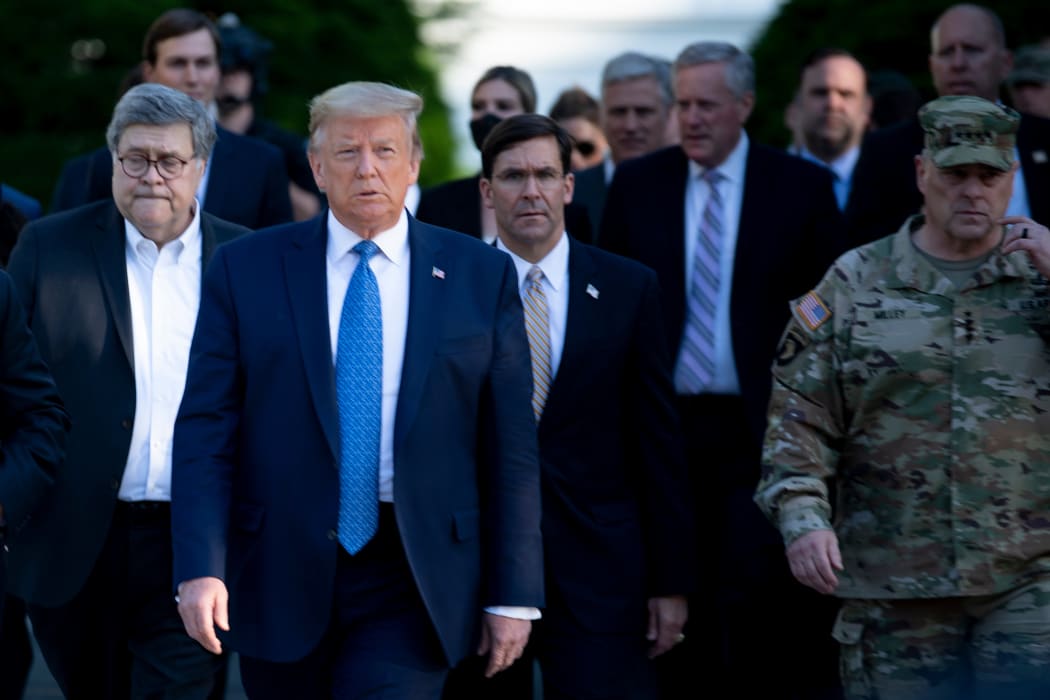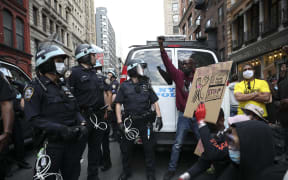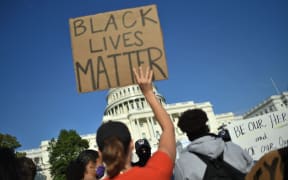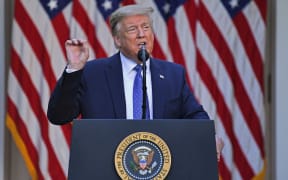US Defense Secretary Mark Esper says he does not support invoking the Insurrection Act to deploy active-duty forces to quell civil unrest for now, despite President Donald Trump's threats to use the military.

US President Donald Trump walks with Defense Secretary Mark T. Esper, centre, Attorney General William Barr, left, and others to visit St John's Church after the area was cleared of protesters, 1 June. Esper said he was unaware he would be part of the photo opportunity. Photo: AFP
Trump said this week he could use military forces in states that fail to crack down on sometimes violent protests over the killing of George Floyd, an unarmed black man, at the hands of a white police officer in Minneapolis.
"The option to use active-duty forces in a law enforcement role should only be used as a matter of last resort and only in the most urgent and dire of situations," Esper told a news briefing.
"We are not in one of those situations now.
"I do not support invoking the Insurrection Act."
Esper's news conference did not go over well with either the president or his top aides, an administration official said, speaking on the condition of anonymity.
To deploy the military on US soil for law enforcement purposes, Trump would need to invoke the 1807 Insurrection Act - something last done in 1992 in response to the Rodney King riots in Los Angeles.
The military has pre-positioned 1600 active duty forces on the outskirts of Washington, D.C., to deploy if needed.
Esper said he regretted using the term "battlespace" this week to describe areas gripped by protests.
"In retrospect, I would use different wording so as not to distract from the more important matters at hand or allow some to suggest that we are militarising the issue," he said.
Trump's threats to deploy active duty troops, even in states that oppose its use to address civil unrest, has stirred alarm within the US military and in Congress, where a top Republican warned it could easily make troops "political pawns."
Esper said he was unaware that he would be part of Trump's politically charged photo opportunity on Monday, when law enforcement forcibly cleared a park outside the White House of peaceful protesters so that the president could take a picture in front of a church holding a Bible.
He acknowledged the difficulty of deploying the military without entering the political fray.
"I work very hard to keep the department out of politics, which is very hard these days as we move closer and closer to an election," Esper said.
In a media briefing following the defence chief's comments, White House Press Secretary Kayleigh McEnany said Esper was still in his post.
"As of right now, Secretary Esper is still Secretary Esper and should the president lose faith we will all learn about that in the future," McEnany said.
McEnany said people protesting the police killing of George Floyd were moved from in front of the historic church before Trump, cabinet members and top aides, including McEnany, walked over because Attorney General William Barr had ordered the security perimeter around the White House be widened earlier in the day.
Retired Navy admiral Mike Mullen, the former chairman of the Joint Chiefs of Staff, said he was "sickened" to see how law enforcement, including the National Guard, had cleared the area and warned against over-use of the US military.
"Our fellow citizens are not the enemy, and must never become so," Mullen wrote.
- Reuters




